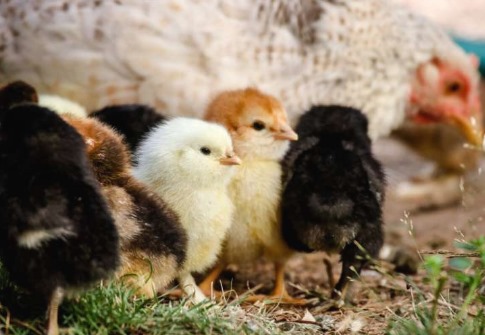By Pieter Devuyst

EU-backed projects seek to avoid the annual culling of millions of male chicks
By identifying the gender of chicks in their eggs, technologies could help prevent the killing of millions of the birds every year.
Wil Stutterheim is on a mission: to stop the global poultry industry's slaughter of billions of day-old chicks every year.
Male chicks are deemed largely useless for poultry farmers because they lay no eggs and produce less meat than females. As a result, in the EU alone an estimated 330 million male chicks are killed every year almost immediately after they are born.
Driven duo
In addition to protests from animal-rights groups, several Member States have called for an EU-wide ban on this practice, which is already prohibited in Germany and France. For Stutterheim, a Dutch entrepreneur, saving male chicks has been a goal since 2011.
He and Wouter Bruins, a fellow biomedical student at Leiden University in the Netherlands, were looking to solve thorny problems as a test of their budding entrepreneurship. It was when Bruins was talking to poultry farmers that the penny dropped.
"One of those farmers told him that, for every hen in his barn, a male chick had been killed," said Stutterheim.
This realization prompted the pair in 2013 to set up a company—In Ovo—dedicated to finding more humane approaches for the poultry sector. A breakthrough came in 2016, when the two were able to identify a single biomarker that allows for the fast, high-volume identification of the sex of an egg.
With the help of EU funding for their InOvotive project that started in 2020 and ended last year, Stutterheim and Bruins developed and scaled up a system that prevents the annual culling of millions of male chicks.
Sex check
The high-tech solution on offer from Leiden-based In Ovo is called "Ella," the name of the daughter of the lead engineer and the Spanish word for "her."
Trays with hundreds of eggs pass through a machine that identifies the gender of the unborn chicks—in less than a second.
"We make a tiny hole in the eggs with a small needle, we take a little bit of fluid out of it and then we analyze this with a very fast screening method," said Stutterheim.
Each sample is checked for a natural biomarker, which shows the gender of the embryo. Then the eggs receive a stamp and are sorted. There is no need for genetic modification.
If it is female, the egg stays in the hatchery to be kept warm until the chick is born. If it is male, the egg is not incubated, saving unnecessary costs, and can be repurposed to be used in pet food, animal feed, pharmaceuticals or cosmetics.
Preventing male chicks from being born also saves the cost of raising male chickens for meat. Males grow much more slowly than females, requiring extra time and feed.
The system has been used by a Dutch commercial hatchery since 2020 and will soon be up and running in Belgium too. Plans are to expand to other parts of the world.
Interest has been expressed by poultry farmers ranging from Switzerland and Germany to countries in the Americas and New Zealand.
Click here to see more...